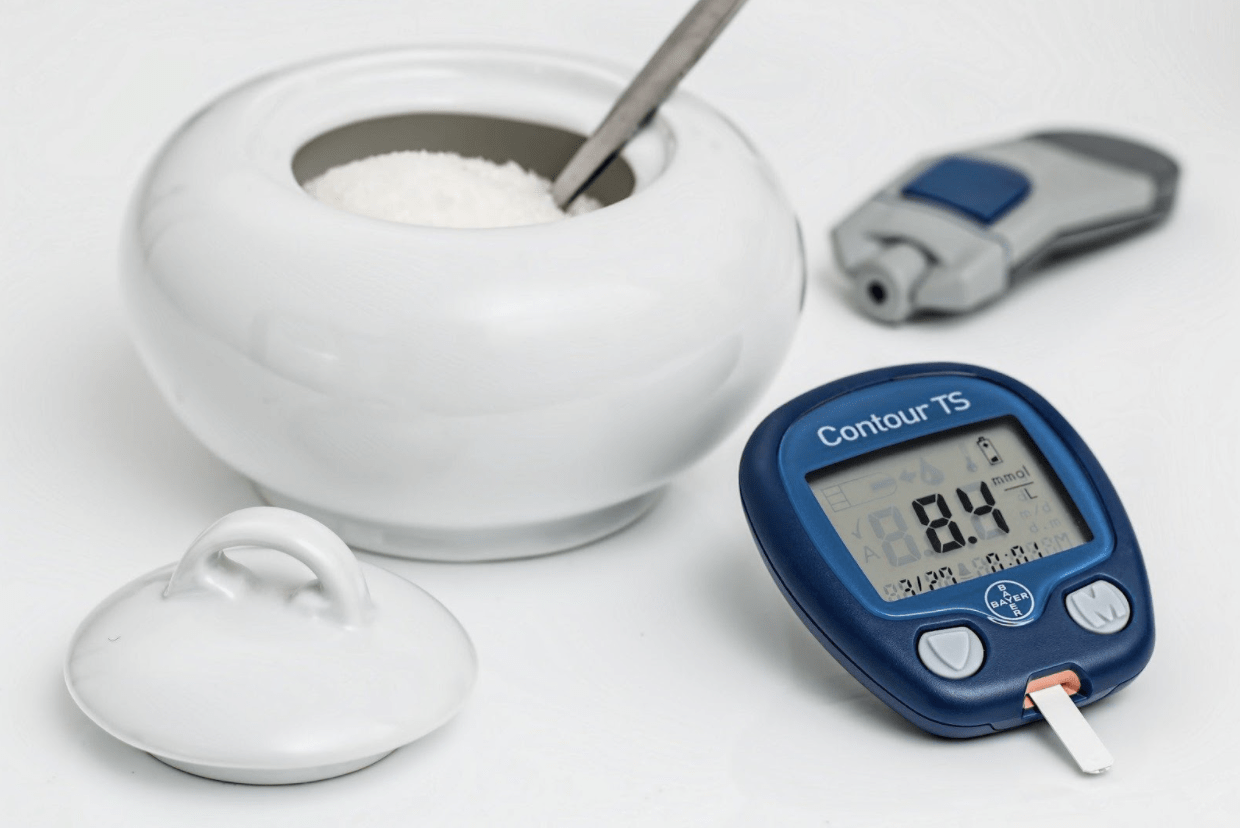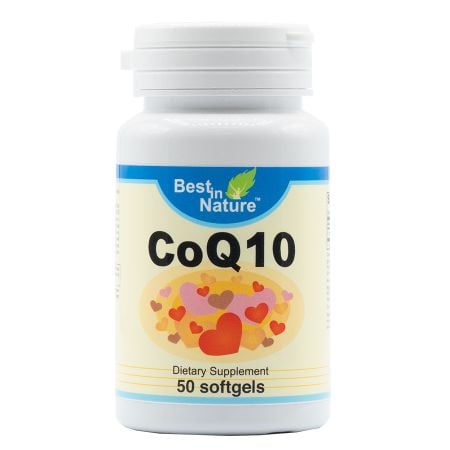
Reviewed and Updated: August 22nd 2024
6 min read
If you have ever visited a drugstore, you've probably come across CoQ10 products in the vitamins and supplements aisle. This product is also one of the most searched for supplements on the Internet, and there is no doubt that many people are interested in it or have used it at one point or another.
But what exactly is CoQ10, and why is it so important?
We're going to share everything there is to know about this product, including what it is and why it is so beneficial to help you make an informed decision on whether you should use it or not.
What Is CoQ10?
Coenzyme Q10 (CoQ10) is a chemical compound that naturally exists in our bodies, and it is mostly concentrated in body organs that require the most energy. These include the heart, kidneys, muscles, and liver. While the body naturally produces CoQ10, its production typically declines as we age. However, this compound can also be acquired in some of the foods we eat, including oily fish, eggs, nuts, whole grains, and organ meats. CoQ10 is also available in the form of supplements, which can be purchased from a drugstore.
Ubiquinone vs Ubiquinol
CoQ10 usually occurs in two types: ubiquinone and ubiquinol. The former occurs naturally in the body in an oxidized (inactive) state while the latter is a reduced (active) form. Regardless of the type you take as a supplement, your body can convert it to the format required for absorption in the cells.
How does CoQ10 work in the body?
Your body takes CoQ10 in its inactive form of ubiquinone and converts it into its active form, ubiquinol. From this state, CoQ10 is used to produce the chemical adenosine triphosphate (ATP), the primary source of energy for the body’s cells. Normally, the production of ATP results in the release of free radicals. However, CoQ10 has antioxidant properties and thus neutralizes them.
Benefits of CoQ10
There are several benefits that CoQ10 provides to users. If you are curious, here is a list of health benefits that CoQ10 provides:
May Help Prevent Heart Failure
CoQ10 has been shown to help restore optimal adenosine triphosphate (ATP) production in the heart while reducing oxidative damage. These combined effects help improve heart function by increasing the production of energy in heart cells, so it can pump blood and oxygen to the body efficiently. This can significantly prevent blood clots and reduce the risk of heart failure.
Studies also suggest that CoQ10 can lower blood pressure, regulate LDL cholesterol, and reduce blood sugar which are all chronic conditions that are considered risks for cardiovascular disease. Additionally, anyone recovering from a heart attack can benefit from CoQ10 which reduces the risk of subsequent attacks and chest pain.
Related: Dietary Dangers: Foods to Avoid for Osteoporosis
Aids in Fertility
Female fertility tends to decline with age as the number and quality of eggs progressively reduces. However, taking CoQ10 supplements can perhaps do some part to mitigate this decline in egg production and reverse oxidative damage, improving the quality of eggs produced which is imperative in a woman’s ability to conceive. CoQ10 can also improve sperm motility which is crucial to conception.
Helps Reduce Headaches
CoQ10 is typically found in the mitochondria of cells and can help improve mitochondrial function, reducing the inflammation during migraines. Studies show that CoQ10 lowers calcitonin gene-related peptide receptor (CGRP) levels which prevents headaches and migraine attacks.
Aids in Managing Diabetes

Oxidative stress causes cell damage, which often leads to conditions such as diabetes. However, CoQ10 has been proven to improve insulin sensitivity and improve the regulation of blood sugar levels.
Plays a Role in Cancer Prevention
The cell damage that results from oxidative stress can affect the functioning of the body’s cells and increase cancer risk. CoQ10 supplements can be very beneficial for reversing oxidative damage from free radicals and improving cellular energy production, promoting better cell function, and perhaps reducing cancer risks. CoQ10 also enhances the immune system which is weakened by chemotherapy treatment. However, the most benefit has been seen when used after chemotherapy as adjuvant therapy -also known as helper therapy.
Helps Improve Lung Health
Low levels of CoQ10 in the body can reduce your lungs' ability to provide oxidative protection, leading to lung diseases such as chronic obstructive pulmonary disease (COPD) and asthma. However, taking CoQ10 supplements improves oxygenation in lung tissues and prevents inflammation, promoting better lung health.
Improves Brain Health
Our brains are typically susceptible to oxidative damage due to the high demand for oxygen and increased fatty acid content. When the natural production of CoQ10 is reduced due to aging, this can significantly increase the risk of diseases such as Parkinson's and Alzheimer's. Fortunately, taking CoQ10 supplements can reduce oxidative damage and improve brain cells' health and function, slowing down these diseases' progression.
Why You Might be Low on CoQ10
As we have seen, Coq10 plays a vital role in our health. The body's cells can produce enough of this essential compound. However, the production of CoQ10 usually declines with age, which is why older people could consider taking CoQ10 supplements. Other factors that may lower the amount of CoQ10 in the body include:
- Genetic mutations
- Disorders of the mitochondria
- Use of statins, which are medications that lower cholesterol
Foods High in CoQ10

As we mentioned earlier, several foods are rich in CoQ10. These include:
- Meats such as pork, chicken, and beef
- Oily fish including mackerel, sardines, and trout
- Fruits such as strawberries and oranges
- Vegetables like broccoli, spinach, and cauliflower
- Legumes such as peanuts and lentils
Supplementing: Ubiquinone vs. Ubiquinol
No matter the form of CoQ10 you take as a supplement, your body can convert it to a form required for absorption by the cells. For instance, if you take a Ubiquinol CoQ10 supplement, your body can convert this reduced form to ubiquinone, an oxidized form, and vice versa. This ensures that a state of equilibrium is maintained between the two forms of CoQ10 in the body.
Looking for a CoQ10 Supplement?
Best in Nature CoQ10 Softgels provide 100mg of potent, pharmaceutical grade CoQ10 per serving.
More Heart-Healthy Supplements from Best in Nature*
VigorHeart Multi-Ingredient Heart Health formula combining CoQ10 with traditional herbs
Omega-3 Salmon King high-potency fish oil with more EPA and DHA than the leading fish oil supplements on the market.
NattoBest an isolated enzyme extract from the famous heart-healthy Japanese soy food Natto
What Form of CoQ10 Is Right for Me?
Both forms of CoQ10 (ubiquinone and ubiquinol) are essential to the body's energy pathways, depending on what is required by the cells. These forms can be oxidized or reduced from the other, thus maintaining a homeostatic state in the mitochondria of body cells.
How Much CoQ10 Should I Take?
The recommended dose of CoQ10 may vary depending on a couple of factors, including:
- Age
- Health status
- pre-existing medical conditions
Therefore, it is essential to consult with your physician to find out the right dosage for you when starting on this supplement. However, many doctors typically recommend a dose of between 100-400 mg/day.
Risks
For most people, CoQ10 can be beneficial but for those with chronic diseases, there might be some risk.
People with the following conditions should talk to their doctor before taking supplemental CoQ10 as it can lower blood pressure and blood sugar levels. .
- Heart Failure
- Kidney problems
- Liver problems
- Diabetes
Interactions
While interactions are typically mild, you should avoid taking a CoQ10 supplement, without the advice of your doctor if you are currently taking:
- Blood thinners
- Blood pressure medication
- Thyroid medications
- Medications for cancer (Chemotherapy)
- Warfarin (Coumadin)
Side Effects
While most adults can tolerate taking CoQ10 supplements, mild side effects do include:
- Diarrhea
- Nausea
- Heartburn
- Loss of appetite
- Vomiting
- Allergic skin rashes
To alleviate side effects while taking CoQ10, dividing the daily total into smaller dosages throughout the day should relieve some of the effects.
Bottom Line: Does Diet Matter?
While supplements are a great way of compensating for low levels of naturally-produced CoQ10, we'd encourage you to get what you can from your diet first. Before taking any supplements, it’s important to talk to your healthcare provider to ensure that the cause of CoQ10 deficiency is not due to any underlying health issues or a side effect of medication you’re taking.
Once your doctor confirms your health, you can consider the strategies listed above to help replenish and maintain your CoQ10 levels.
* This article is for informational purposes only and doesn’t constitute medical advice. For immediate health concerns, please consult your physician.
These statements have not been evaluated by the Food and Drug Administration. Products are not intended to diagnose, treat, cure or prevent disease.
© 2024 Best in Nature All rights reserved







Validate your login
Sign In
Create New Account